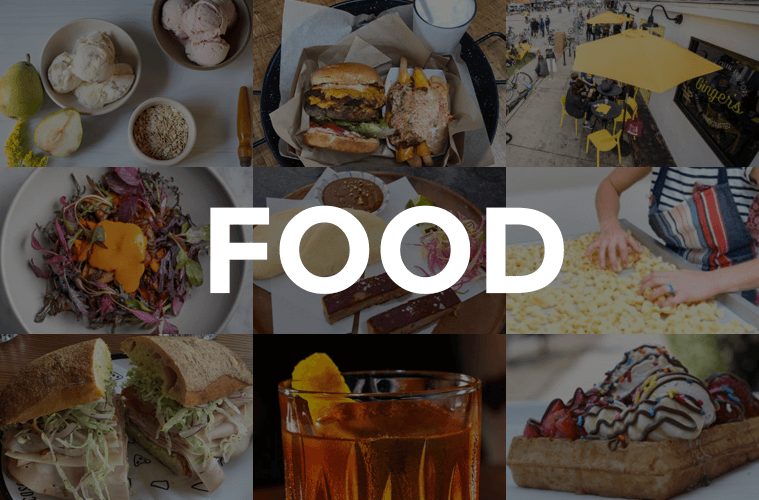Photo by Anne FishbeinAs bouillabaisse is the specialty of Marseilles and paella the most famous dish of Valencia, jalea is the great specialty of Lima’s industrial port suburb Callao, a fry-up reinforced with tubers and oniony salsa that seems to encompass half the creatures of the sea. In Gardena, at the Peruvian restaurant El Rocoto, the jalea is an enormous thing, an acre and a half of fish and shrimp, squid and octopus, scallops and clams, potatoes and chunked yuca, brown and sizzling, piled halfway to the ceiling, still smoking from its bath of hot oil. You’ve had fried shellfish before, but the clams and scallops in this jalea are dipped in batter and fried still in their shells, which are almost impossible to prize open without burning your fingers. You’ve had fried yuca too, probably at a Caribbean restaurant, but this yuca is especially appealing, frazzled to a deep crunch on the outside and almost molten inside. There is a sprinkling of chancho on top, toasted kernels of oversized Peruvian corn, and an intensely tart salsa criolla, made with shaved red onions, chiles and fresh lime juice. To work to the bottom of an immense jalea like this one, which is paved with crisply fried fish fillets, is the work of an afternoon for two hungry people, lubricated with bottles of cold, brisk Cuzqueña lager from the Andes and supplemented perhaps with an order of the restaurant’s clean, sharp fish ceviche. Fried seafood usually has the half-life of an unstable isotope, but El Rocoto’s breading is so flavorful, its seafood so fresh that you will still be picking bits of fried squid out of your refrigerator three days after you bring the leftovers home. El Rocoto, named for a delicious, fearsomely hot Peruvian chile occasionally nicknamed the Gringo Killer — a chile, unobtainable in its fresh form in the United States, that the restaurant happens not to serve — occupies a couple of storefronts in one of those pan-Asian malls that are so popular in this part of the South Bay, sandwiched between a Chinese supermarket and Marukai’s brilliant take on the 99-cent store that features mostly discontinued stationery and kitchen gadgets still in their untranslated Japanese packaging. (It is almost impossible to browse through Marukai without amassing a double armful of miniature carrot slicers and weird-color gel pens.) Like so many of the Peruvian restaurants in Los Angeles as well as Peru, El Rocoto is run by a Chinese family, and you will see at least as many plates of fried wonton, egg-flower soup, fried rice and violently crimson sweet-and-sour pork on the tables as you will bowls of the fish soup parihuela or the fried rice-and-bean concoction known as tacu-tacu. The house version of chicharron de pollo, marinated strips of fried chicken served with a low heap of sweet, pickled daikon, could almost have come off the menu of one of the old Chiu Chow places in Chinatown. Almost uniquely among local Peruvian restaurants, El Rocoto does not serve pollo a la brasa, the fire-roasted chicken that became a fad here not long after it became popular in Lima itself. But you will find most of the other Peruvian stalwarts on the menu here, papas a la Huancaina, served cold and bathed in a smooth, dense sauce of cheese and mild chiles; choros a la criolla, cold mussels dressed with a lime-intensive fresh salsa; saffron-scented Peruvian tamales steamed in banana leaves; lenguada a lo macho, fried fish smothered in fried shellfish and sluiced with cream. The kitchen does a particularly good job with tallarín saltado, a sort of smoky Peruvian chow mein seared with meat or seafood in a really hot pan, although the tallarín verde, sauced with a creamy, spinachy Peruvian pesto and served with thin fried steak, is a little underflavored. Saltados — bits of meat or seafood or chicken stir-fried with onions and peppers and a double handful of hand-cut French fries — are reliably good, though there are more interesting things on the menu, and the salt and garlic and hot-pan smokiness really come through. On weekends, El Rocoto’s menu almost doubles in length, adding dishes like the yellow tripe-potato stew cau-cau and the restaurant’s Lima-style terrine, causa, made with cold mashed potatoes, tuna salad and ripe avocado. Sunday afternoons, the line of people waiting for a table is almost as long as it is outside some Southland dim sum parlors. Weekends are the time to try the lamb stew known as seco de cordero, which is drizzled with a pungent cilantro purée, or the spicy chicken stew aji de gallina, or the house arroz con pollo, a concoction composed of almost equal proportions of rice and herbs. There are usually a few desserts available at El Rocoto, but you will inevitably finish with alfajores, freshly baked Peruvian shortbread cookies, dense as ingots of pure silver, sandwiching a filling of gooey Peruvian milk caramel. It’s the only cookie I have ever encountered that can feed a family four. El Rocoto, 1356 Artesia Blvd., Gardena, (310) 768-8768. Open for lunch and dinner Mon.–Thurs. 11 a.m.–9 p.m., Fri.–Sat. 9:30 a.m.–10 p.m., and Sun. 9:30 a.m.–9 p.m.; Peruvian breakfast Sat.-Sun. Mastercard and Visa accepted. Beer and wine. Lot parking. Takeout. Dinner for two, food only, $17–$32. Recommended dishes: chicharrones de pollo, ceviche, jalea.
Advertising disclosure: We may receive compensation for some of the links in our stories. Thank you for supporting LA Weekly and our advertisers.

